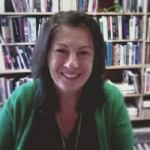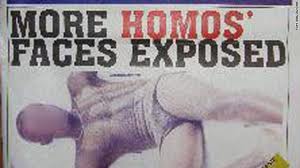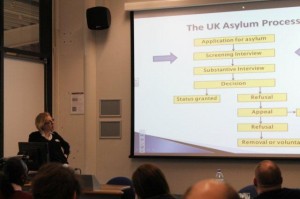Social Science
Lesbian Life Stories: Stuck in the Past? On the Archives of Lesbian Oral Testimonies (ALOT)
January 14, 2016
by Laurence Georgin
 Thursday 18 February 2016 – 6:00pm
Thursday 18 February 2016 – 6:00pm
The 2016 Southampton Stonewall Lecture will be given this year by Professor Elise Chenier, Professor of History at Simon Fraser University in British Columbia. All welcome.
This 2016 Stonewall lecture from a leading historian of sexuality and gender will explore and explain lesbian experience as captured in three decades of oral histories. In the 1990s the discipline of history, once a leader in LGBT studies, was overtaken by literary and cultural studies, and ‘life experience’ fell out of academic fashion. Professor Chenier will show that “lesbian” remains a useful category of analysis and that life stories continue to have a transformative effect, playing a key role in constructing the LGBT community.
This lecture will be chaired by Professor Mark Cornwall, Professor of Modern Europe History at University of Southampton.
Speaker information
Elise Chenier is Professor of History at Simon Fraser University, British Columbia, and an expert in the history of sexuality and oral history. Her first book, Strangers In Our Midst: Sexual Deviancy in Postwar Ontario (Toronto, 2008) was awarded an honourable mention for the Canadian Law & Society Book Prize. She has published widely in journals such as the Radical History Review, the Journal of Women’s History, and Left History, and is the founder of the Archives of Lesbian Oral Testimony (alotarchives.org), an open-access digital archives, and interracialintimacies.org, a digital visualization of the research process and learning tool. She is currently writing a book on ‘Same Sex Marriage in the USA, 1950-1987’.
Event Information
Venue
Avenue Campus
University of Southampton
SO17 1BF
RSVP by 14 February
This event is free however you must register to attend and receive joining instructions. To register for a place please visit the Online Store website.
The inaugural Stonewall Lecture was given in March 2012 by Angela Mason CBE, former executive director of the Stonewall charity. Her lecture, drawing a large audience, was entitled: ‘Twenty-Five Years On: The Fight for LGBT Rights in the UK’. The 2013 lecture ‘Gay Culture in Postwar New York: Community Creation and Conflict‘ was given by Professor George Chauncey (Yale), 2014 was provided by Professor Laura Doan speaking about ‘On the Entanglements of Queer Memory and History: The case of Alan Turing‘ and last year we welcomed Professor Richard B Parkinson from the University of Oxford with his lecture entitled ‘Glimpses of a Gay World History: From Ancient Egypt to the Modern Museum‘. You will find recordings and interviews of these lectures by following the links above.
 If you wish to attend this very popular lecture please register by 14 February for a place via the Online Store. Ensure you book soon to avoid disappointment!
If you wish to attend this very popular lecture please register by 14 February for a place via the Online Store. Ensure you book soon to avoid disappointment!
There will be a charity collection on behalf of Stonewall at the end of the lecture.
Call for Papers on Soviet and Post-Soviet Sexualities (UCL)
July 18, 2014
by Carla Barrett
Call for papers for a one-day workshop on
Soviet and Post-Soviet Sexualities
UCL School of Slavonic and East European Studies
Friday, 20 February 2015
The aim of this one-day workshop is to engage critically with the under-researched topic of Soviet and post-Soviet sexualities. Prompted by the introduction of laws restricting the rights of LGBTQ citizens and the increase in homophobic violence in Russia and other post-Soviet states, there is a pressing need to understand attitudes towards non-normative sexualities, the lived experience of sexual minorities and the ways in which LGBTQ individuals and groups seek/have sought to negotiate/resist heteronormative structures and homophobia in the specific socio-political, cultural and historic contexts of the Soviet and post-Soviet space. The workshop will comprise papers from and debate among both established academics and research students from a range of disciplines and working on various aspects of the study of non-normative sexualities in the Soviet and post-Soviet space. The aim is to publish a special issue and/or an edited volume of the papers presented.
Confirmed speakers:
- Philip Bullock, University of Oxford
- Dan Healey, University of Oxford
- Alexander Kondakov, European University of St Petersburg
- Richard Mole, University College London
- Francesca Stella, University of Glasgow
If you would like to participate, please send an abstract of 200-300 words to Richard Mole at UCL (r.mole@ucl.ac.uk) by 1 September 2014. Papers from researchers based in the former Soviet Union will be particularly welcome. Funds are available to make a contribution (up to 100%) towards presenters’ travel and accommodation costs.
Sexuality, Asylum, Evidence and Existence
March 4, 2014
by Carla Barrett
 Claire Bennett (ESRC Centre for Population Change) is giving a talk entitled ‘Sexuality, Asylum, Evidence and Existence’ at the Weeks Centre for Social and Policy Research on Tuesday 11th March at 2pm. This is part of the Families and Social Capital Research Group Seminar Series at LSBU. Claire’s seminar will draw upon her PhD research on lesbian asylum seekers.
Claire Bennett (ESRC Centre for Population Change) is giving a talk entitled ‘Sexuality, Asylum, Evidence and Existence’ at the Weeks Centre for Social and Policy Research on Tuesday 11th March at 2pm. This is part of the Families and Social Capital Research Group Seminar Series at LSBU. Claire’s seminar will draw upon her PhD research on lesbian asylum seekers.
The seminar is free and open to all. To RSVP please email gilliev@lsbu.ac.uk, or for more information click here to download a flyer.
Seeking Asylum in the UK: Lesbian Perspectives
February 24, 2014
by Carla Barrett
 Claire Bennett is a member of the ESRC Centre for Population Change. She recently submitted her PhD, a qualitative study exploring how lesbian asylum seekers navigate the UK asylum process and the impact this has on their social and sexual identity. Her research covers the public and private nexus which are enacted during the asylum process and includes the legal requirement to ‘evidence your sexuality,’ to disclose personal and intimate accounts of same-sex relationships and to frequently recall experiences of sexual violence to the Home Office and immigration judges.
Claire Bennett is a member of the ESRC Centre for Population Change. She recently submitted her PhD, a qualitative study exploring how lesbian asylum seekers navigate the UK asylum process and the impact this has on their social and sexual identity. Her research covers the public and private nexus which are enacted during the asylum process and includes the legal requirement to ‘evidence your sexuality,’ to disclose personal and intimate accounts of same-sex relationships and to frequently recall experiences of sexual violence to the Home Office and immigration judges.
To read more about her current research project, click here.
Her research was also referred to in a recent Guardian article, entitled ‘Home Office wouldn’t believe I was gay: how do you prove it?’ To read the article, click here.
